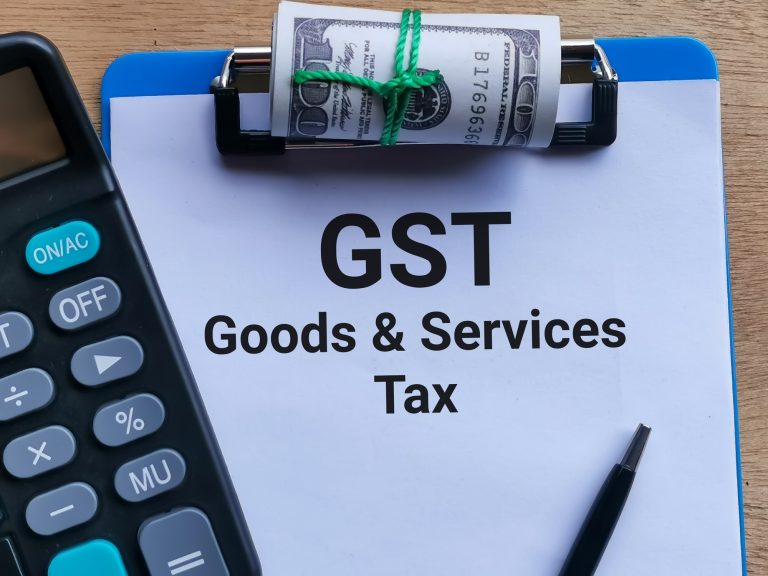GST Filing in Bangalore

In the bustling economic landscape of Bangalore, a city renowned as India’s Silicon Valley, the implementation of the Goods and Services Tax (GST) has been a significant game-changer for businesses of all scales. GST Filing in Bangalore is not just a statutory requirement; it’s a critical component that intertwines with the financial and legal fabric of the city’s vibrant business environment.
Introduced as a comprehensive indirect tax on the supply of goods and services in India, GST replaced multiple cascading taxes levied by the central and state governments. For businesses in Bangalore, this transition to a unified tax system meant a significant shift in how they manage their taxation processes. GST Filing in Bangalore is pivotal for several reasons. Firstly, it simplifies the tax structure, replacing various indirect taxes like VAT, service tax, and excise duty with a single tax. This simplification aids businesses in understanding their tax liabilities better, ensuring more straightforward compliance and administration.
Moreover, GST Filing in Bangalore plays a crucial role in streamlining the tax process, making it more transparent and efficient. The digitalization of the entire GST process, from registration to filing returns, has been a boon for businesses, especially in a tech-savvy city like Bangalore. This digital approach not only saves time but also reduces the margin of error, ensuring accuracy in tax filings.
For businesses, particularly in a competitive market like Bangalore, staying compliant with GST regulations is vital. It not only ensures legal compliance but also enhances the credibility of the business. Regular and accurate GST Filing in Bangalore reflects a business’s commitment to lawful operations, which can be instrumental in building trust with stakeholders, including investors, customers, and regulatory authorities.
In essence, GST Filing in Bangalore is more than just a legal obligation. It’s a critical practice that supports the economic integrity of businesses, contributing to the overall financial health and governance of the city’s dynamic commercial ecosystem. As Bangalore continues to grow as a major economic hub, the role of GST in shaping its business landscape becomes increasingly significant, making diligent GST filing an indispensable part of business operations.
Understanding the Fundamentals of GST Filing in Bangalore
The Impact of GST on Bangalore’s Businesses
The Goods and Services Tax (GST), introduced in India in 2017, revolutionized the tax framework, impacting businesses across Bangalore. This unified tax system, replacing multiple indirect taxes, has significantly altered how businesses handle their taxation. GST Filing in Bangalore is not just a regulatory mandate but a fundamental aspect that influences the operational and financial aspects of businesses in this dynamic city.
One of the primary impacts of GST on businesses is the creation of a more transparent and streamlined tax structure. It has eliminated the complexities associated with dealing with various state and central taxes, thereby simplifying the tax compliance process. For businesses in Bangalore, which range from startups to multinational corporations, this means a more straightforward and efficient approach to managing their tax liabilities.
The Crucial Role of GST Filing in Bangalore
GST Filing in Bangalore is crucial for several reasons. Firstly, it ensures compliance with the law, which is fundamental for any business to operate without legal hindrances. Timely and accurate filing of GST returns helps in maintaining a clean financial record, which is essential for businesses seeking investments or undergoing audits.
Moreover, GST Filing in Bangalore aids in maintaining a seamless flow of input tax credits. This is particularly important for businesses as it directly affects their cash flows and overall profitability. By accurately filing GST returns, businesses can claim input tax credits on their purchases, reducing the overall tax burden.
Benefits of Compliance and Consequences of Non-Compliance
Compliance with GST regulations, including timely GST Filing in Bangalore and GST Return Filing in Bangalore, brings several benefits. It enhances the credibility of a business, ensures smooth operations, and avoids legal complications. On the other hand, non-compliance can lead to severe consequences, including penalties, interest charges, and in some cases, legal action. It can also negatively impact the reputation of a business, which is crucial in a competitive market like Bangalore.
Determining Eligibility for GST Filing in Bangalore
Who Needs to File GST in Bangalore?
In the economic hub of Bangalore, understanding the eligibility criteria for GST Filing in Bangalore is crucial for businesses to ensure compliance with tax regulations. The Goods and Services Tax (GST) regime, which unified several indirect taxes into a single tax system, mandates certain businesses and individuals to register and file GST returns based on specific conditions and thresholds.
Primarily, the eligibility for GST Filing in Bangalore is determined by the annual turnover of a business. As per the GST norms, any business with an annual turnover exceeding Rs. 20 lakhs is required to register for GST and subsequently file returns. This threshold is a key determinant for businesses in Bangalore, considering the city’s vast and varied commercial activities.
Thresholds and Conditions for GST Filing in Bangalore
Apart from the turnover criterion, there are other conditions under which GST Filing in Bangalore becomes mandatory. These include:
Inter-State Operations: Businesses involved in the supply of goods or services across state borders, irrespective of their turnover, need to register for GST. This is particularly relevant for Bangalore’s businesses that operate on a national scale.
E-commerce Operators: All e-commerce operators are required to file GST regardless of their turnover. Given Bangalore’s thriving e-commerce sector, this is a significant point for many digital businesses.
Casual Taxable Persons: Individuals or entities that occasionally undertake transactions involving the supply of goods or services in a territory where GST is applicable, but do not have a fixed place of business, fall under this category.
Agents and Brokers: Agents of a supplier, input service distributors, and those who supply goods or services on behalf of others must also register for GST.
Reverse Charge Mechanism: Businesses that are required to pay tax under the reverse charge mechanism need to file for GST. This mechanism applies when the buyer is liable to pay tax instead of the seller.
Understanding these criteria is essential for businesses in Bangalore to determine their obligation for GST Filing in Bangalore. Non-compliance, whether due to unawareness or negligence, can lead to penalties and affect the business’s financial health. Therefore, it’s imperative for businesses, especially those operating in a dynamic city like Bangalore, to stay informed and compliant with the GST regulations.

A Comprehensive Step-by-Step Guide to GST Filing in Bangalore
Navigating through the process of GST Filing in Bangalore can be a daunting task for many businesses. To simplify this process, here is a detailed, step-by-step guide that covers everything from registration to the online filing of GST returns.
Step 1: Determine Your Eligibility for GST Filing in Bangalore
Before you begin, determine if your business meets the criteria for GST Filing in Bangalore. This includes assessing your annual turnover and understanding if your business activities require you to register for GST under the specific conditions set by the GST Council.
Step 2: Gather Necessary Documentation
The next step involves collecting all the necessary documents required for GST registration. This typically includes:
- PAN card of the business or individual
- Proof of business registration or incorporation certificate
- Identity and address proof of promoters/directors
- Bank account statement/cancelled cheque
- Digital signature
Step 3: Complete the GST Registration Process
Once you have all your documents in place, proceed to register for GST. This can be done online through the GST portal. Fill in the required details in the registration form (Form GST REG-01) and submit it along with the necessary documents.
Step 4: Obtain Your GST Identification Number (GSTIN)
After successful registration, you will receive your GST Identification Number (GSTIN), a unique code that serves as your identity for all GST Filing in Bangalore.
Step 5: Understand the GST Return Filing Process
Familiarize yourself with the different types of GST returns and their due dates. This includes GSTR-1 for outward supplies, GSTR-2 for inward supplies, and GSTR-3B, a monthly summary of outward and inward supplies.
Step 6: File Your GST Returns Online
Log in to the GST portal and file your returns using the appropriate forms. Ensure that all the information provided is accurate to avoid any discrepancies. You can also utilize various accounting software that integrates with the GST portal for a more streamlined process.
Step 7: Pay Any Due GST
After filing your returns, calculate and pay any GST due. This can be done online through the GST portal using net banking, credit/debit cards, or NEFT/RTGS.
Step 8: Keep Records for Future Reference
Maintain records of all your GST Filing in Bangalore and payments. This is crucial for future reference and in case of any discrepancies or audits.
By following these steps diligently, businesses in Bangalore can ensure a smooth and compliant GST Filing process. Remember, staying informed and up-to-date with the latest GST regulations is key to successful compliance.
Navigating GST Return Filing in Bangalore: A Detailed Overview
In the dynamic business environment of Bangalore, understanding and navigating the GST Return Filing in Bangalore process is crucial for compliance and financial success. This section provides a comprehensive guide on the different types of GST returns, their filing requirements, and the steps involved in the filing process.
Understanding Different Types of GST Returns
GSTR-1: This return is used for reporting details of outward supplies of taxable goods and/or services. Businesses in Bangalore must file GSTR-1 monthly or quarterly, depending on their turnover.
GSTR-2A: This is an auto-populated return reflecting the details of inward supplies. It is generated for each business based on the information furnished by their suppliers in GSTR-1.
GSTR-3B: A monthly summary return, GSTR-3B, must be filed by all regular taxpayers in Bangalore. It summarizes the details of outward supplies, input tax credit claimed, and the net tax payable.
GSTR-4: Applicable to businesses registered under the GST Composition Scheme in Bangalore, GSTR-4 is a quarterly return.
GSTR-5: This return is filed by non-resident foreign taxpayers who are involved in business activities in Bangalore.
GSTR-6: Filed by Input Service Distributors, it includes details of input credit distributed.
GSTR-9: An annual return that consolidates the information furnished in the monthly/quarterly returns. It provides a comprehensive overview of the GST activities of a business throughout the year.
Step-by-Step Guide to GST Return Filing in Bangalore
Prepare Required Documents: Ensure you have all necessary documents, including purchase and sales invoices, debit and credit notes, and other relevant financial records.
Access the GST Portal: Log in to the GST portal using your credentials.
Choose the Appropriate Return Form: Based on your business type and activities, select the relevant GST return form (e.g., GSTR-1, GSTR-3B).
Fill in the Details: Accurately enter all required information in the return form. This includes details of supplies, input tax credit availed, and tax payable.
Verify and Submit the Return: After filling in the details, review the return for any errors or discrepancies. Once verified, submit the return on the portal.
Pay the Due Tax: If there is any tax liability, make the payment through the GST portal using the appropriate payment methods.
File the Return: After payment, if applicable, file the return. You will receive an acknowledgment upon successful filing.
Keep Records: Maintain a copy of the filed returns and acknowledgment for your records and future reference.
For businesses in Bangalore, staying compliant with the GST Return Filing in Bangalore requirements is essential. It not only ensures adherence to tax laws but also helps in maintaining a transparent and efficient financial system. Regular updates and understanding of the GST laws are key to effective and compliant GST Filing in Bangalore. By following these steps and keeping abreast of the latest GST regulations, businesses can navigate the complexities of GST with ease, ensuring their financial practices align with legal requirements and contribute to their overall success in the competitive landscape of Bangalore.
Avoiding Common Pitfalls in GST Filing in Bangalore
Navigating the complexities of GST Filing in Bangalore can be challenging, and businesses often encounter several common mistakes. Understanding these errors and knowing how to avoid them is crucial for ensuring compliance and smooth financial operations.
Typical Errors in GST Filing in Bangalore
Incorrect or Incomplete Information: One of the most common mistakes is the submission of inaccurate or incomplete details in GST returns. This can range from errors in basic information like PAN, address, and bank details to incorrect tax calculations.
Delayed Filing: Missing the deadline for GST Return Filing in Bangalore can lead to penalties and interest charges. Businesses often underestimate the time required for gathering information and completing the filing process.
Misunderstanding Input Tax Credit (ITC) Claims: Incorrectly claiming ITC is a frequent error. This includes claiming ITC on ineligible expenses or failing to reconcile ITC with GSTR-2A.
Non-compliance with Reverse Charge Mechanism (RCM): Many businesses fail to comply with RCM provisions, either by not recognizing the applicability of RCM on certain transactions or by miscalculating the tax due under RCM.
Neglecting Amendments in GST Returns: Amendments in previously filed returns are often overlooked. This includes not rectifying mistakes made in earlier returns in subsequent filings.
Strategies to Avoid These Mistakes
Ensure Accurate Data Entry: Double-check all the information before submitting your GST returns. Utilize accounting software that minimizes the risk of manual errors.
Adhere to Deadlines: Keep track of all GST Return Filing in Bangalore deadlines and plan the filing process well in advance to avoid last-minute rushes.
Understand ITC Regulations Thoroughly: Stay informed about the latest rules regarding ITC claims. Regularly reconcile your ITC with GSTR-2A to ensure that your claims are accurate.
Comprehend RCM Obligations: Educate yourself about the RCM provisions applicable to your transactions. Ensure that you calculate and pay the correct amount of tax under RCM.
Regularly Review and Amend Returns: Make it a practice to review past GST filings and amend any errors in the subsequent returns.
By being vigilant and informed about these common mistakes and their solutions, businesses in Bangalore can achieve a smoother and more compliant GST Filing process. This not only helps in avoiding penalties but also ensures a robust and transparent financial practice within the business.
Sustaining Compliance After GST Filing in Bangalore
After completing GST Filing in Bangalore, it is imperative for businesses to continually adhere to GST regulations. This ongoing compliance is not just about adhering to legal requirements but also about ensuring the financial health and credibility of the business.
Importance of Regular Audits and Assessments
Conducting Regular Audits: Post-GST Filing in Bangalore, businesses should conduct regular internal audits. These audits help in identifying any inadvertent errors or inconsistencies in the filed returns. By proactively addressing these issues, businesses can avoid complications during external audits by GST authorities.
Preparing for GST Assessments: The GST regime includes various types of assessments like scrutiny, provisional, and best judgment assessments. Businesses must be prepared for these assessments, which are conducted to ensure the accuracy of the returns filed. Prompt and accurate responses to any queries or notices from the GST department are crucial to avoid penalties.
Staying Updated with Evolving GST Regulations
Monitoring Regulatory Changes: The GST framework is dynamic, with frequent updates and amendments. Businesses in Bangalore must stay informed about these changes, as they can impact GST Filing procedures and compliance requirements. This includes being aware of changes in tax rates, input tax credit norms, and filing deadlines.
Investing in Continuous Learning: Regular training and workshops for the accounting and finance teams are essential. These training sessions should focus on the latest developments in GST laws, ensuring that the team responsible for GST Filing in Bangalore is well-equipped to handle changes effectively.
Utilizing Technology for Compliance: Leveraging advanced GST software can aid in ensuring compliance. These tools can automate many aspects of GST Filing, from calculating tax liabilities to preparing returns, thereby reducing the risk of errors.
Engaging with GST Experts: For complex transactions or uncertainties in GST Filing in Bangalore, consulting with GST experts or tax consultants can provide clarity and guidance, ensuring that the business remains compliant with the latest regulations.
Customizing GST Filing in Bangalore for Varied Business Sectors
The approach to GST Filing in Bangalore varies significantly across different business types. Each sector – be it service providers, traders, or manufacturers – faces unique challenges and requirements under the GST regime. Understanding these nuances is crucial for effective and compliant GST Filing.
GST Filing in Bangalore for Service Providers
Understanding Place of Supply: Service providers in Bangalore need to determine the place of supply accurately, as it dictates whether IGST, CGST, or SGST is applicable. This is especially important for services rendered across state lines.
Time of Supply Rules: Adhering to the time of supply rules is crucial for service providers. They need to recognize the point in time when the services are deemed to be supplied, which affects the tax liability period.
Invoicing Requirements: Proper invoicing with a clear breakdown of taxes is essential. Service providers should ensure that their invoices are compliant with GST regulations, including details like GSTIN, HSN/SAC codes, and tax rates.
GST Filing Strategies for Traders
Inventory Management: Traders should maintain accurate records of their inventory, as it impacts the input tax credit. Ensuring proper documentation of stock transfers and inter-state sales is vital.
E-Way Bill Compliance: For traders involved in the movement of goods, compliance with e-way bill requirements is essential. They must generate e-way bills for consignments exceeding the specified value limit.
Reconciliation of Returns: Regular reconciliation of GSTR-2A with purchase records is crucial for traders to claim the correct input tax credit and avoid discrepancies in GST Filing in Bangalore.
GST Filing Considerations for Manufacturers
Capital Goods Input Tax Credit: Manufacturers need to pay special attention to the input tax credit on capital goods. Proper accounting of the input tax credit over the asset’s lifecycle is necessary.
Product Classification and HSN Codes: Correct classification of products under the appropriate HSN codes is critical for manufacturers. This ensures accurate tax rate application and compliance in GST Filing in Bangalore.
Reverse Charge Mechanism: Manufacturers must be aware of the reverse charge mechanism, especially if they deal with unregistered vendors. They need to account for GST under reverse charge and claim input tax credit accordingly.
Why Choose A&D Consultancy for GST Filing in Bangalore
In the complex and ever-evolving landscape of GST Filing in Bangalore, A&D Consultancy stands out as a premier choice for businesses seeking expert guidance and efficient handling of their GST obligations. Here’s why A&D Consultancy is the go-to firm for GST Filing in Bangalore.
Expertise in GST Filing in Bangalore
A&D Consultancy boasts a team of seasoned tax professionals who specialize in GST Filing in Bangalore. Their expertise ensures that businesses not only comply with GST regulations but also optimize their tax positions. The consultancy’s deep understanding of local and national GST laws makes them an invaluable asset for businesses operating in Bangalore.
Tailored Solutions for GST Return Filing in Bangalore
Understanding that each business has unique needs, A&D Consultancy offers customized solutions for GST Return Filing in Bangalore. Whether it’s managing complex transactions, claiming input tax credits, or navigating the intricacies of e-way bills, their tailored approach ensures that every aspect of GST is handled with precision and care.
Streamlined Process and Compliance Assurance
With A&D Consultancy, businesses can expect a streamlined process for GST Filing in Bangalore. They employ the latest software and tools to ensure accurate and timely filing, minimizing the risk of errors and penalties. Their proactive approach to compliance keeps businesses ahead of regulatory changes, ensuring they are always compliant with the latest GST norms.
Comprehensive Services Beyond GST Filing
Beyond just GST Filing in Bangalore, A&D Consultancy offers a range of services including GST registration, audit assistance, and advisory services. This comprehensive approach means businesses can rely on them for all their GST-related needs, making A&D Consultancy a one-stop solution for GST compliance in Bangalore.
Strong Track Record and Client Satisfaction
A&D Consultancy’s strong track record of client satisfaction speaks volumes about their reliability and expertise in GST Filing in Bangalore. Their commitment to delivering exceptional service has earned them a reputation as one of the most trusted GST consultancies in Bangalore.
In conclusion, for businesses seeking expert assistance with GST Filing in Bangalore, A&D Consultancy offers unmatched expertise, customized solutions, and a commitment to compliance and client satisfaction. Their comprehensive approach to GST makes them the ideal partner for navigating the complexities of GST in Bangalore.
Frequently Asked Questions About GST Filing in Bangalore
As businesses navigate through GST Filing in Bangalore, several common questions often arise. This FAQ section aims to address these queries, providing clarity and guidance on GST Filing procedures in Bangalore.
For businesses in Bangalore, the threshold limit for GST Filing is an annual turnover of Rs. 20 lakhs for service providers and Rs. 40 lakhs for goods suppliers. Once this threshold is crossed, GST Filing becomes mandatory.
The frequency of GST Return Filing in Bangalore depends on your turnover and the scheme you are registered under. Typically, businesses file monthly (GSTR-3B and GSTR-1) or quarterly returns (GSTR-4 for composition scheme taxpayers).
For GST Filing in Bangalore, businesses typically need to provide:
- PAN of the business or individual
- Aadhaar card for identity verification
- Bank account details and a copy of the cancelled cheque
- Business registration or incorporation certificate
- Digital signature certificate of the authorized signatory
Mistakes in a GST return can be rectified in the subsequent return period. It’s important to identify and correct these errors as soon as possible to avoid penalties. For significant errors, it may be advisable to consult with a GST expert.
Yes, e-commerce operators in Bangalore have specific GST Filing requirements. They are required to collect and deposit tax at source (TCS) and file GSTR-8. They must also ensure compliance with GST regulations for interstate transactions.
Yes, businesses can claim ITC while GST Filing in Bangalore. This credit is available on the GST paid on purchases and can be used to offset the GST liability on sales. Accurate documentation and timely filing are crucial for claiming ITC.
Late GST Filing in Bangalore can result in penalties. There is a late fee of Rs. 20 per day for nil returns and Rs. 50 per day for regular returns. Additionally, interest may be charged at 18% per annum on the outstanding tax amount.
GST registration is mandatory for businesses with a turnover exceeding the specified threshold limits. However, businesses with lower turnover can opt for voluntary registration to avail benefits like input tax credit.
Yes, businesses can claim a refund in GST Filing in Bangalore for excess tax paid, unutilized input tax credit, or in cases of export under bond/LUT. The refund process is initiated through the GST portal, and supporting documents must be furnished.
Businesses in Bangalore opting for the Composition Scheme under GST have to file quarterly returns using GSTR-4 and pay tax at a fixed rate on their turnover. This scheme simplifies GST Filing for small businesses but comes with certain restrictions, like not being able to claim input tax credit.



